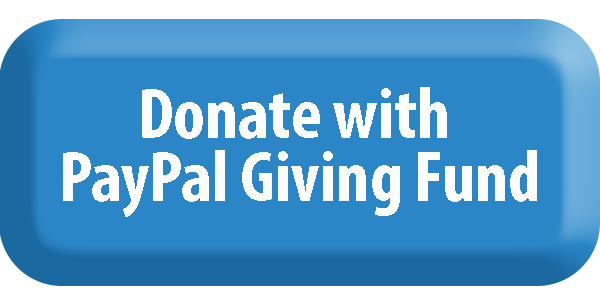Dear Hope Nation,
As you may have heard, a vaccine for COVID-19 has been released for distribution. Because we spend so much time with folks who may be positive for the virus, the Hope staff falls into a priority group for receiving the vaccine. In fact, I’ve signed up with the state and with the CDC and will be vaccinated Friday afternoon. (I promise my Saturday letter will be about that experience.) Honestly, I am 98% excited about this and 2% nervous, about the same ratio as when I get a flu shot each fall.
Interestingly, while the vast majority of folks I’ve mentioned this to have been either jealous or at least positive, a handful have tried to warn me of the potential danger of vaccines. Some people are opposed to any vaccine at any time for any disease. I think they’re wrong, they think I’m naïve or deluded—we’re not likely to reach any compromise. If you are completely anti-vaccination, I wish you the best. On the other hand, if it’s this particular vaccine you’re nervous about, I’ve reprinted a fact sheet from the Centers for Disease Control below.
People have died from COVID-19. People are dying from COVID-19. People will continue to die from COVID-19. I don’t want to be one of them, and I don’t want to have spread the disease to anyone.
I matter. You matter. We matter.
Keith
Facts about COVID-19 Vaccines
Now that there are authorized and recommended COVID-19 vaccines in the United States, accurate vaccine information is critical.
How do I know which sources of COVID-19 vaccine information are accurate?
It can be difficult to know which sources of information you can trust. Learn more about finding credible vaccine information.
Can a COVID-19 vaccine make me sick with COVID-19?
No. None of the authorized and recommended COVID-19 vaccines or COVID-19 vaccines currently in development in the United States contain the live virus that causes COVID-19. This means that a COVID-19 vaccine cannot make you sick with COVID-19.
There are several different types of vaccines in development. All of them teach our immune systems how to recognize and fight the virus that causes COVID-19. Sometimes this process can cause symptoms, such as fever. These symptoms are normal and are a sign that the body is building protection against the virus that causes COVID-19. Learn more about how COVID-19 vaccines work.
It typically takes a few weeks for the body to build immunity (protection against the virus that causes COVID-19) after vaccination. That means it’s possible a person could be infected with the virus that causes COVID-19 just before or just after vaccination and still get sick. This is because the vaccine has not had enough time to provide protection.
After getting a COVID-19 vaccine, will I test positive for COVID-19 on a viral test?
No. Neither the recently authorized and recommended vaccines nor the other COVID-19 vaccines currently in clinical trials in the United States can cause you to test positive on viral tests, which are used to see if you have a current infection.?
If your body develops an immune response—the goal of vaccination—there is a possibility you may test positive on some antibody tests. Antibody tests indicate you had a previous infection and that you may have some level of protection against the virus. Experts are currently looking at how COVID-19 vaccination may affect antibody testing results.
If I have already had COVID-19 and recovered, do I still need to get vaccinated with a COVID-19 vaccine?
Yes. Due to the severe health risks associated with COVID-19 and the fact that re-infection with COVID-19 is possible, vaccine should be offered to you regardless of whether you already had COVID-19 infection. CDC is providing recommendations to federal, state, and local governments about who should be vaccinated first.
At this time, experts do not know how long someone is protected from getting sick again after recovering from COVID-19. The immunity someone gains from having an infection, called natural immunity, varies from person to person. Some early evidence suggests natural immunity may not last very long.
We won’t know how long immunity produced by vaccination lasts until we have more data on how well the vaccines work.
Both natural immunity and vaccine-induced immunity are important aspects of COVID-19 that experts are trying to learn more about, and CDC will keep the public informed as new evidence becomes available.
Will a COVID-19 vaccination protect me from getting sick with COVID-19?
Yes. COVID-19 vaccination works by teaching your immune system how to recognize and fight the virus that causes COVID-19, and this protects you from getting sick with COVID-19.
Being protected from getting sick is important because even though many people with COVID-19 have only a mild illness, others may get a severe illness, have long-term health effects, or even die. There is no way to know how COVID-19 will affect you, even if you don’t have an increased risk of developing severe complications. Learn more about how COVID-19 vaccines work.
Will a COVID-19 vaccine alter my DNA?
No. COVID-19 mRNA vaccines do not change or interact with your DNA in any way.
Messenger RNA vaccines—also called mRNA vaccines—are the first COVID-19 vaccines authorized for use in the United States. mRNA vaccines teach our cells how to make a protein that triggers an immune response. The mRNA from a COVID-19 vaccine never enters the nucleus of the cell, which is where our DNA is kept. This means the mRNA cannot affect or interact with our DNA in any way. Instead, COVID-19 mRNA vaccines work with the body’s natural defenses to safely develop immunity to disease. Learn more about how COVID-19 mRNA vaccines work. ?
At the end of the process, our bodies have learned how to protect against future infection. That immune response and making antibodies is what protects us from getting infected if the real virus enters our bodies.



